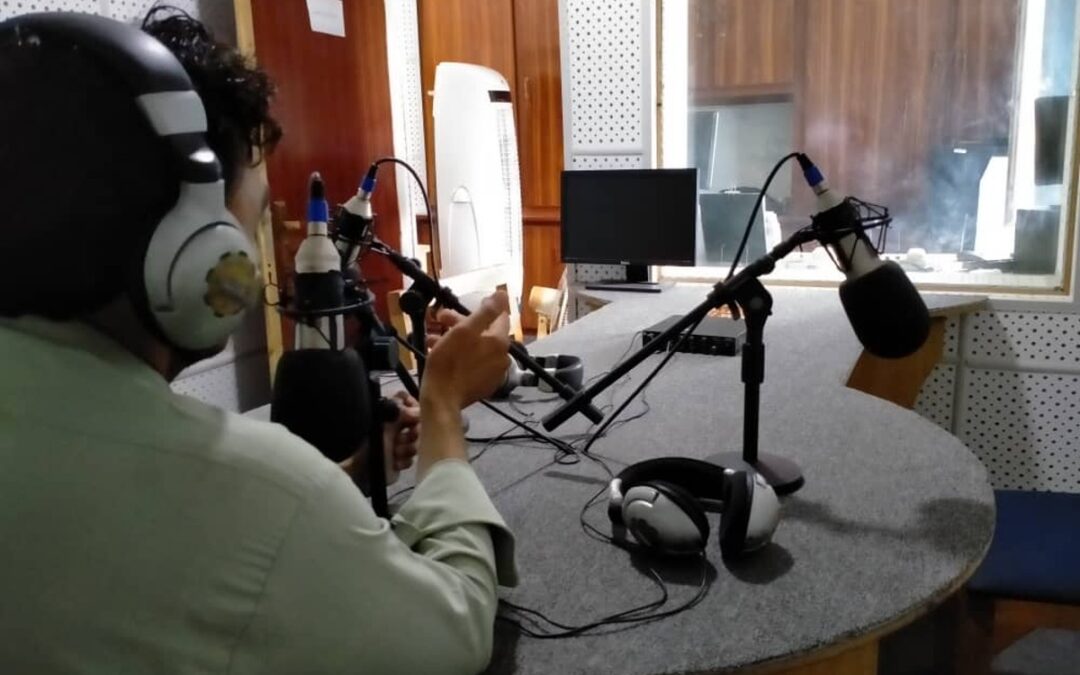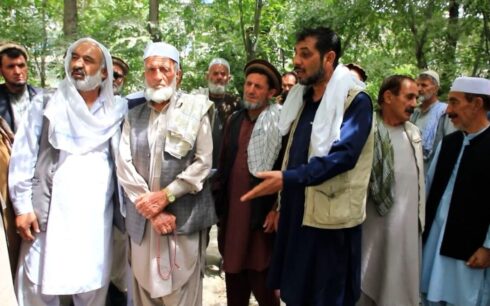For years this medium has been a popular choice among people, young and old, across the country, but with the ongoing economic crisis and severe restrictions imposed by the Taliban, radio stations have suffered dearly in the past 18 months.
Radio has played a crucial role in Afghanistan for almost 100 years – it has conveyed information, education, and entertainment – and it has been a popular medium due to its affordability and accessibility.
The first radio station – Kabul Radio – went on air about 94 years ago, during the tenure of former Afghan King Amir Amanullah Khan. Between 1951 and 1961 radio grew in popularity across the country especially as more cities got access to electricity.
After the collapse of the Taliban regime in 2001, freedom of speech and freedom of the press became a focal point and public and private radio stations popped up everywhere, with some reaching really remote parts of the country.
For radio enthusiasts, World Radio Day, celebrated on February 13, is a key day in their calendar – no less for fans and employees of radio stations across Afghanistan.
But this year, World Radio Day was remembered on a more somber note, in light of Taliban imposed restrictions on Afghan media outlets.
The group’s harsh treatment of journalists and media managers has also taken its toll on the industry and forced many journalists and media workers, including radio personalities, to leave the country.
The economic crisis has also had a profound impact on the sector, as many private radio stations have been forced to cut down on staff, and in some cases close down altogether.
One example is the radio station sector in Bamiyan province. Prior to the fall of the former government, there were five local radio stations. Since the Taliban takeover, only two still broadcast.
Aziza Azizi, who worked for Bamiyan Radio for five years, said: “Working conditions have become difficult for women, no one is willing to be interviewed by us, and it has become difficult for us to perform duties outside the office.”
Hamidullah Arefi, the general manager of Bamiyan Radio, meanwhile raised concerns over the severe financial difficulties he is dealing with and the high cost of electricity.
“Due to the low income of the five private radio stations that were operating in Bamiyan, now only Bamiyan Radio and Nasim Radio are operating,” Arefi said.
He also stated that their broadcasting policy and program content has changed following the takeover of the Taliban.
Prior to the Taliban takeover, 401 radio stations went on air in the country after 2001. Of these, 56 stations closed down before the collapse of the republic government.
Before the Taliban seized control, there were 345 radio stations. Well over 100 have since closed down, and thousands of journalists and media workers lost their jobs.
Women were also hit hard, and of the estimated 1,238 female journalists and media workers at radio stations in the country prior to August 2021, now only about 160 still work in the industry.
According to Nai, a media-support organization, currently 228 radio stations – with 1,781 male and 163 female employees – are operating across the country.





